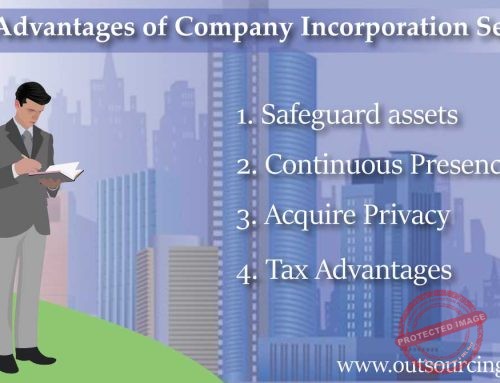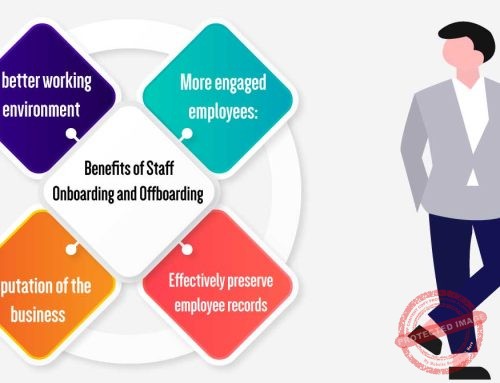A certified GST Number acts as a beacon of legitimacy and compliance for a business. It ensures that a company is registered under the Goods and Services Tax (GST) regime, signaling to both consumers and other businesses that the entity is operating within the legal framework.
This instills confidence among stakeholders and fosters trust. Additionally, having a GST Number enables a business to claim the input tax credit, thus reducing costs by setting off the GST paid on inputs against the GST to be paid on outputs.
Furthermore, it facilitates easy nationwide commercial transactions, ensuring that enterprises do not face tax-related issues while transacting across state lines. A noticed GST Number acts as a safety in the event of audits or legal review, proving the company’s conformity to tax laws.
So, either way, you can ask the following question, Does a GST Number Improve Interstate Business Transactions Easier?”
Yes, a GST Number significantly streamlines interstate business transactions. Replacing multiple taxes like CST and state-specific VAT with a unified GST system simplifies the taxation process. This allows businesses to easily charge Integrated GST (IGST) on interstate sales and claim input tax credits, making interstate dealings more transparent and efficient.
Let’s converse about it further down!
Does a GST Number Improve Interstate Business Transactions Easier?
Indeed, a GST Number plays a crucial role in streamlining interstate business transactions. Before the GST regime, interstate sales were subject to multiple taxes, including Central Sales Tax (CST) and state-specific VAT, leading to a complex and often cumbersome taxation process.
With the introduction of the GST system, these multiple layers of taxes were unified into a single framework, and more transparent interstate dealings. Possessing a GST Number allows businesses to charge IGST on interstate sales, which simplifies the tax remittance process.
Additionally, the GST system provides a seamless mechanism for claiming input tax credits on interstate purchases, further incentivizing and simplifying such transactions.
A GST Number has made interstate business transactions more straightforward, and free from the earlier convoluted tax structures.
7 Ordinary Benefits of GST Number
A GST (Goods and Services Tax) Number offers several benefits to businesses:
- Unified Tax System: GST replaces multiple indirect taxes such as VAT, excise duty, and service tax with a single consolidated tax, making the taxation process simpler and more transparent.
- Input Tax Credit: Businesses can claim credit for the tax paid on their purchases, which can be offset against their tax liabilities, leading to reduced costs.
- Enhanced Compliance: A unified system makes it easier for businesses to adhere to tax norms, reducing the chances of inadvertent non-compliance.
- Boost to E-commerce: The GST system provides a level playing field for e-commerce businesses, eliminating complications that arose from the earlier state-wise tax structures.
- Interstate Transactions: GST facilitates easier and more transparent interstate trade by introducing Integrated GST (IGST) which replaced the older, more complex Central Sales Tax (CST).
- Higher Threshold for Registration: The GST system offers higher turnover thresholds for businesses before they need to register, benefiting small and medium enterprises.
- Greater Transparency and Efficiency: The GST system reduces the cascading effect of taxes, resulting in more transparent product pricing and potential cost reductions for consumers.
Are All Businesses Required to Obtain a GST Number?
Not all businesses are mandated to obtain a GST Number. The requirement to register for GST is typically based on factors like annual turnover, the nature of business activities, and the geographical location of the business.
While larger businesses with turnovers exceeding a specific threshold (which may vary from state to state and for goods versus services) are compelled to register, smaller businesses below this threshold might be exempted.
However, even if exempted, businesses can opt for voluntary registration to take advantage of input tax credits and establish credibility in the market. Businesses need to stay informed about local regulations to ascertain their GST registration obligations.
Does GST Number Facilitate Input Tax Credit for Businesses?
Yes, one of the primary advantages of the GST system is the facilitation of the Input Tax Credit (ITC) for businesses. With a GST Number, businesses can claim credit for the tax they’ve paid on their purchases and inputs.
This mechanism ensures that tax is levied only on the value addition at each stage of the supply chain, eliminating the cascading effect of taxation. By setting off the GST paid on purchases against the GST collected on sales, businesses can effectively reduce their tax liability.
This not only optimizes cash flow but also encourages tax compliance, as one can avail of ITC only if the corresponding sales are reported by the supplier in their GST returns.
Facing Issues with Your GST Number Registration?
Facing issues with GST Number registration can be challenging, but by understanding the common problems and their solutions, you can streamline the process. Here’s a brief overview:
1. Documentation Issues
Ensure you have all necessary documents in order, as per the GST guidelines. Commonly required documents include a PAN card, proof of business registration, photographs of the business owner(s), proof of the place of business, and bank account details.
2. Mismatch of PAN Details
The details provided during GST registration should match those on the PAN card. Any discrepancy can lead to a rejection.
3. Portal Errors
The online registration portal might sometimes be slow or non-responsive due to heavy traffic. Try accessing it during non-peak hours or clear the browser cache and cookies before retrying.
4. OTP Delays
Sometimes, OTPs for verification might not be received instantly. Ensure your registered mobile number has a good network reception and wait for a while. If it doesn’t arrive, try resending the OTP.
5. Digital Signature Issues
Ensure your Digital Signature Certificate (DSC) is valid and correctly integrated with the system. It’s also important to ensure that the DSC drivers are properly installed on your computer.
6. Jurisdictional Details
Make sure to select the correct jurisdiction related to your business location. This information is typically available on the official GST portal or local tax offices.
7. Incorrect Details Entered
If you’ve made an error in your application, you might receive a notice seeking clarification or correction. Respond to this notice promptly with the necessary corrections.
What Role Does a GST Number Play in E-commerce Platforms?
A GST number is essential in e-commerce platforms, particularly in places where the tax system has been established. The GST number, which is essentially a tax identity number, assures compliance with tax laws and allows the smooth flow of supply tax credits for businesses.
For e-commerce platforms, having a GST number is indispensable. It allows them to levy the correct tax rates on goods and services, ensuring accurate invoicing to customers.
Additionally, e-commerce vendors are often required to provide their GST details to list on platforms, enabling the platform to remit the appropriate taxes to the government.
Furthermore, the GST number aids in inter-state commerce by simplifying tax structures that previously varied between states.
Tips for GST Number
Here are the top tips regarding the GST (Goods and Services Tax) number, suitable for businesses operating in regions where GST is implemented:
1. Timely Registration:
Ensure that you register for a GST number once your business crosses the mandatory turnover limit set for GST registration in your jurisdiction. This not only ensures compliance but also helps you claim input tax credits.
2. Regularly Update Business Details:
If there are changes in your business, such as its address, contact details, or bank account, update them on the GST portal. Regularly reviewing and updating these details ensures smooth communication and avoids potential discrepancies.
3. Keep Accurate Records:
Always maintain precise and clear records of all business transactions. This will help during GST filing and in case of audits. Using integrated accounting software can help automate and streamline this process.
4. Stay Informed on Tax Rates:
GST rates can vary based on product categories and services. Regularly update yourself on the latest GST rates applicable to your business offerings to ensure accurate billing and tax collection.
5. Utilize Input Tax Credit (ITC):
One of the significant advantages of the GST system is the ability to claim Input Tax Credit (ITC). Ensure you understand how ITC works and claim credits for the GST you’ve paid on business-related purchases, which can offset your GST liabilities.
Conclusion
The GST (Goods and Services Tax) number is more than just a tax identification for businesses it’s an essential component for transparent, streamlined, and compliant financial operations in jurisdictions where the GST system has been implemented.
Acquiring and maintaining an accurate GST number aids businesses in simplifying tax processes, availing benefits like the Input Tax Credit, and ensuring correct tax remittance to the government.
As the importance of the GST number in guaranteeing a level playing field and consistent tax structure grows, so does the importance of e-commerce and cross-border trading. To realize the benefits of GST and contribute to a healthy financial ecosystem, remaining up to date.
FAQ
Who needs a GST number?
Any business or individual that provides goods or services and crosses the turnover threshold set by the jurisdiction needs to register for a GST number. This threshold may vary based on the country or state.
What’s the difference between GST and VAT?
Both are indirect taxes, but while VAT (Value Added Tax) typically pertains to the sale of goods, GST covers both goods and services, aiming to remove the cascading effect of taxes.
How often do I need to file GST returns?
The frequency of GST return filing varies based on the business type and jurisdiction. Some businesses may need to file monthly, while others might do so quarterly or annually.






